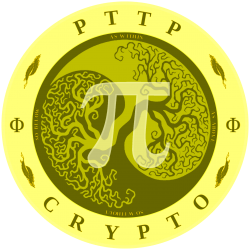ANOREXIA
People with an eating disorder (such as anorexia) suffer from a dysfunctional or less active endocannabinoid system. By stimulating this system with the cannabinoids found in weed, such diseases can be addressed from the cause. For most people, eating is a pleasurable activity. In essence, we are wired to experience euphoria when we taste something delicious. However, eating is not that much fun for everybody. And although this might sounds strange, there are people that experience fear and anxiety when they eat. Patients with anorexia nervosa (Latin for ‘lack of appetite due to nervous circumstances’) often believe they are too fat. Even thought they often eat almost nothing and experience extreme weight loss. The strict eating and exercising schedules they design for themselves are almost impossible to follow, so it happens that these patients have binge on food. Afterwards, they feel guilty, bad and fear gaining weight. This fear is so compulsive that they try to limit the damage by vomiting, laxative tablets and/or excessive exercise. Anorexia nervosa is a psychiatric disorder that is characterised by an abnormal dislike of food, bad eating habits with extreme weight loss and poor self image. Many patients with this eating disorder also have fears, obsessive compulsive disorder (OCS/OCD) and depression.
The disease is most common among adolescent girls, but sometimes among adults men and women. Experts believe that anorexia nervosa and boulimia are caused by an imbalance in certain chemicals in the brain. This could have effect on the neurotransmitters and the endocannabinoid system (ECS). Depending on the clinical symptoms, and the damage that has been done to the body, most patients are treated with food therapy, antidepressants, and cognitive behavioural therapy. The antidepressants often don’t work and are highly addictive and damaging for the body. Therefor, there is a need for a more natural and less damaging medicine that can affect this disease at the core. The receptors of the ECS are spread throughout the body and fulfil organ-specific physiological roles. The body’s own cannabinoids, such as 2-arachidonyl-glycerol (2AG) and anandamide, stimulate the CB1 and CB2-receptors of the ECS and assist the body in functioning normally. These endocannabinoids play a part in regulating several processes in our body, among which our appetite and body weight, because they affect the CB1-receptors in the brain. CB1-receptors are associated with food intake behaviour, stimulating appetite and regulating it’s feedback signals. The ‘I’ve have enough’ signal is a good example of that. Not only the body’s own cannabinoids affect the ECS-receptors. Phytocannabinoids (phyto = herbal) that we know from the cannabis plant can also stimulate the CB1 and CB2-receptors. It has been scientifically proven that THC stimulates the CB1-receptors that observe taste and smell. It’s use results in a higher dopamine level and it induces appetite. THC offers you a euphoric rewarding feeling after eating something. Cannabis can assist in transforming eating back into a pleasurable activity for patients with anorexia nervosa, while at the same time reducing fear and depression.
Mensen met een eetstoornis (zoals anorexia) hebben een verstoord of minder actief endocannabinoïde-systeem. Door dit systeem te stimuleren met de cannabinoïden uit wiet kunnen dergelijke ziekten bij de oorzaak worden aangepakt.
Eten is voor de meeste mensen een plezierige bezigheid. Wij zijn er tenslotte voor gemaakt om euforie te ervaren wanneer we iets lekkers eten. Toch is het niet voor iedereen een pretje. En hoe gek het voor sommige ook klinkt, zijn er mensen die angst en zenuwen ervaren wanneer ze eten.
Patiënten met anorexia nervosa (Latijn voor ‘gebrek aan eetlust door nerveuze omstandigheden’) vinden zichzelf vaak te dik. Ondanks dat ze bijna niets eten en extreem veel gewicht verliezen.
Het zware eet- en beweegpatroon dat ze zichzelf aanmeten is natuurlijk niet altijd te behouden, dus komt het voor dat patiënten eens een eetbui krijgen. Daarna voelen ze zich vaak schuldig, slecht en angstig om aan te komen. Deze angst overheerst zo erg dat mensen door te braken, laxeertabletten en/of overdreven sporten de schade willen beperken.
Anorexia nervosa is een psychiatrische aandoening die dus wordt gekenmerkt door een abnormale afkeer voor voedsel, slechte eetgewoonten met extreem gewichtsverlies en een slecht zelfbeeld. Veel patiënten met deze eetstoornis hebben ook last van angsten, obsessieve-compulsieve stoornis (OCS/OCD) en depressie.
De ziekte komt vooral onder adolescente meiden voor, maar ook weleens bij volwassenen en mannen. Veel experts geloven dat anorexia nervosa en boulimia nervosa veroorzaakt worden door een disbalans tussen bepaalde stoffen in het brein. Dit zou vervolgens invloed hebben op de neurotransmitters (signaalstoffen) van het endocannabinoïde-systeem (ECS).
Afhankelijk van de klinische symptomen, oftewel hoe het lichaam eraan toe is, worden de meeste patiënten behandeld middels voedingstherapie, anti-depressiva en cognitieve gedragstherapie. De anti-depressiva werken echter niet altijd en zijn vaak zeer verslavend en schadelijk voor het lichaam. Vandaar dat er ook behoefte is aan een natuurlijk en minder schadelijk middel die deze ziekte bij de oorzaak zou kunnen aanpakken.
De receptoren van het ECS zijn verspreid door het hele lichaam en vervullen orgaan-specifieke fysiologische rollen. Lichaamseigen cannabinoïden, zoals 2-Arachidonyl-glycerol (2AG) en anandamide, stimuleren de CB1 en CB2-receptoren van het ECS en helpen daarmee het lichaam normaal te functioneren.
Deze endocannabinoïden spelen een grote rol in het reguleren van diverse processen in ons lichaam, waaronder hongergevoelens en het lichaamsgewicht, door op de CB1-receptoren in het brein te werken.
CB1-receptoren worden geassocieerd met voedselopnamegedrag, het stimuleren van honger en het reguleren van de feedback-signalen ervan. Het ‘ik zit vol’ signaaltje is daar een mooi voorbeeld van.
Niet alleen lichaamseigen cannabinoïden hebben invloed op de ECS-receptoren. Fytocannabinoïden die wij kennen uit de cannabisplant (fyto = plantaardig), kunnen ook de CB1- en CB2-receptoren stimuleren.
Het is wetenschappelijk bewezen dat THC de CB1-receptoren stimuleert waar smaak en geur wordt waargenomen. Het gebruik ervan zorgt daarom voor een hoger dopamine-niveau en de inductie van hongergevoelens. THC geeft je op die manier een euforisch beloningsgevoel nadat je iets eet. Cannabis kan zo eten weer een plezierige bezigheid maken voor patiënten met anorexia,terwijl het tegelijkertijd angst en depressie verlicht.

